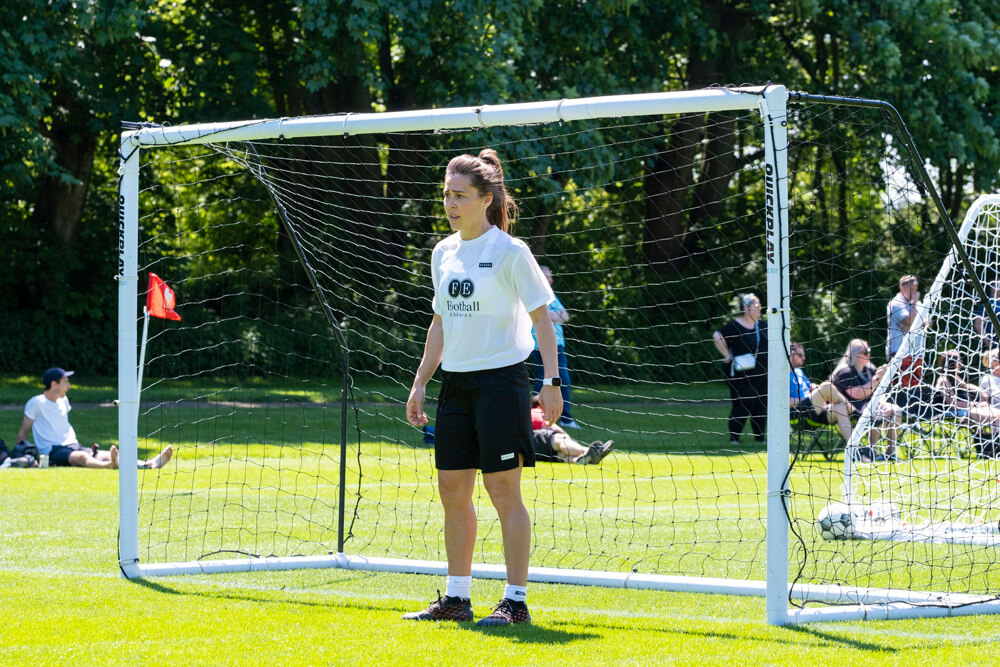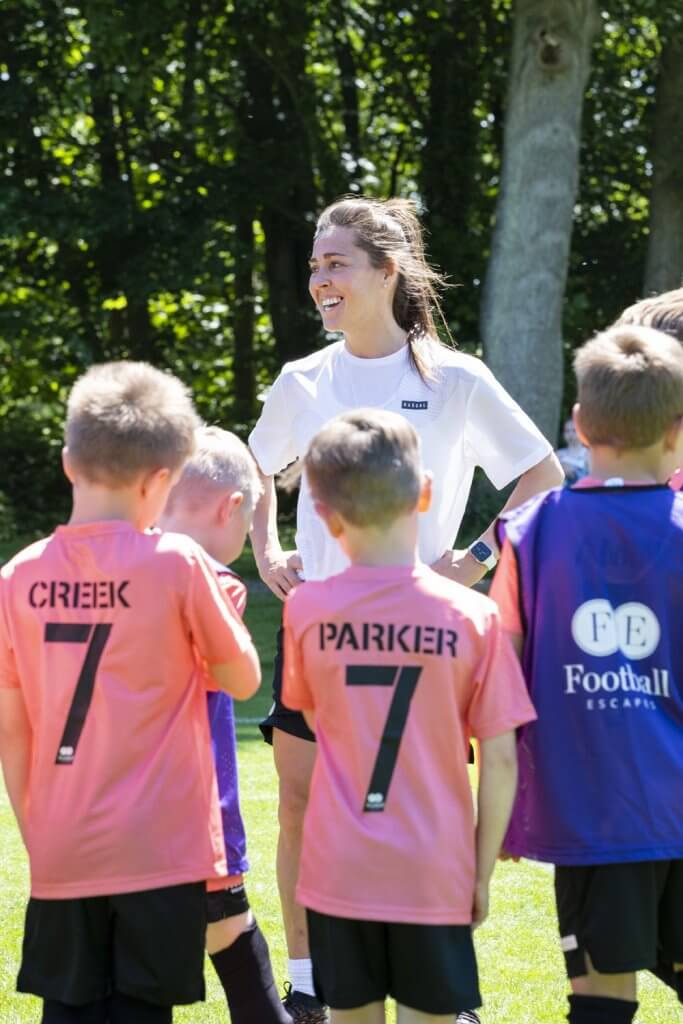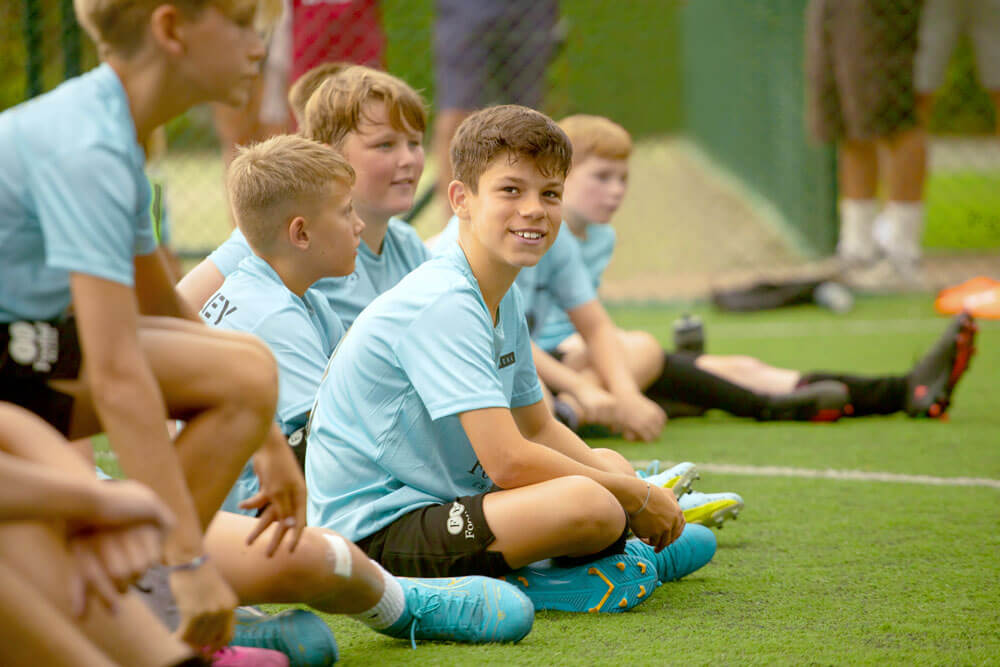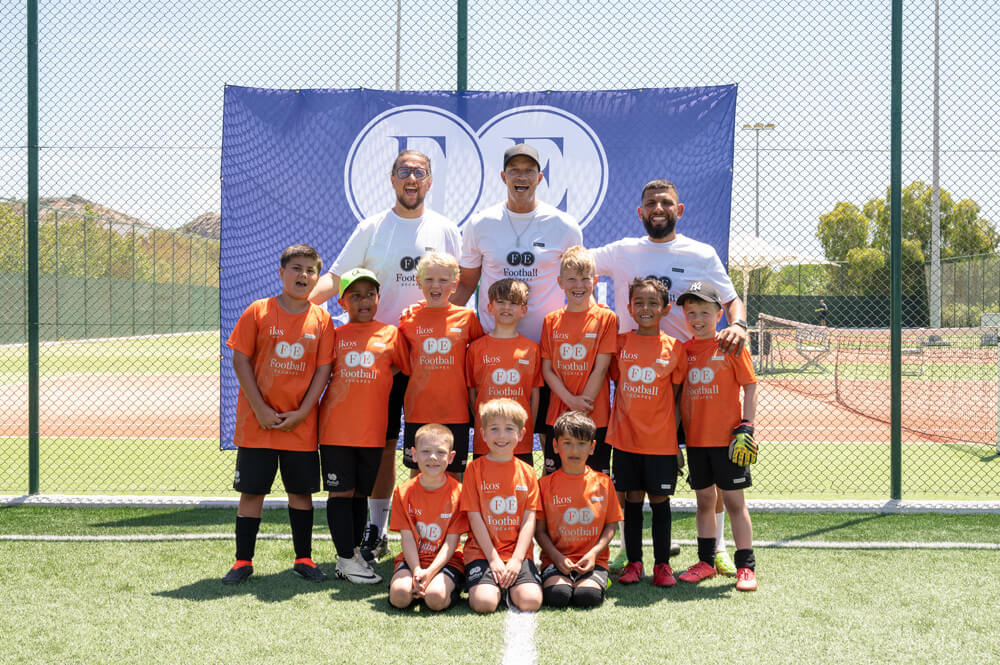From grassroots beginnings to becoming England’s most-capped footballer, Fara Williams’ journey is one of resilience, leadership, and unwavering passion. In this exclusive interview with The Executive Magazine, Williams opens up about pivotal career moments, overcoming personal challenges, mentoring the next generation, and her vision for the future of women’s football. More than just a football legend, Williams shares the life lessons that have shaped her both on and off the pitch, inspiring a new era of athletes and leaders. Now, advocating the exciting Football Escapes programme at Ikos Resorts, Williams is demonstrating her business prowess whilst still enjoying the game.

Your journey from grassroots football to becoming England’s most-capped player is nothing short of remarkable. Can you walk us through some of the pivotal moments in your career that shaped you as both a player and a leader, and how you’ve applied these lessons beyond the pitch?
“The journey was never straightforward, and honestly, that’s what made it so special. Starting out in grassroots football, I didn’t have the easiest path, but I think that’s what helped shape my resilience. A major moment was earning my first cap for England. It made me realise the impact of hard work. Then, winning the FA Cup with Everton in 2010, it was a reminder that perseverance pays off, no matter how long the wait. Off the pitch, these experiences have taught me the value of teamwork, patience, and always staying grounded, which is something I try to pass on to the next generation.”

Football is a demanding sport, both physically and mentally. What have been some of the toughest personal and professional challenges you’ve faced over your 20-year career, and how did you develop the resilience to overcome them?
“There were moments I felt like giving up, but football was my escape. Professionally, injuries were hard, especially when they happen just as you’re finding form. The key for me was never allowing myself to feel defeated for too long. Resilience comes from understanding that setbacks are part of the journey, and if you keep pushing, you’ll come out the other side stronger.”
You’ve transitioned from playing at the highest levels to now coaching young players as part of the Football Escapes program with Ikos Resorts. How do you approach mentoring the next generation, and what qualities are most critical for young athletes to develop, not just as footballers, but as individuals preparing for life beyond the sport?
“For me, mentoring is about helping kids find their own love for the game and making sure they feel supported both on and off the pitch. I focus on nurturing qualities like self-discipline, resilience, and respect for others. Football is great for building character, but I also remind them that there’s life beyond the sport, and developing a well-rounded personality is just as important as any technical skill.”
In today’s business world, diversity and inclusion are major themes, yet you’ve spent your career excelling in an industry still heavily dominated by men. What unique challenges have you faced as a woman in football, and what strategies have helped you succeed in an environment where you were often in the minority?
“There were definitely moments when being a woman in football felt isolating. You always feel like you have to prove yourself that little bit more, and sometimes it’s hard to be taken seriously. But I’ve always believed that letting my performance speak for itself is the best way to break down barriers. Surrounding myself with supportive teammates and coaches also made a big difference, as did being vocal about the need for more visibility and support for women’s football.”

The partnership between Ikos Resorts and Football Escapes gives young players the chance to train with legends like yourself. From a personal development perspective, what kind of impact do you believe this immersive experience has on these children, and how do you think sports can shape their futures both on and off the pitch?
“The impact is huge, not just in terms of football but in building confidence and learning how to work within a team. They’re learning discipline and how to push themselves, but they’re also creating memories that will stick with them for life. Football teaches you resilience, and even if these kids don’t go on to become professional players, they’ll take those lessons with them into whatever they do next.”
As someone who has played for some of the top football clubs and represented Great Britain at the Olympics, how have you balanced the pressures of high-level competition with maintaining your personal brand and pursuing new opportunities, such as your involvement with Ikos Resorts?
“It’s all about staying true to who you are. I’ve never been someone who chased fame or recognition, and I think that’s helped keep me grounded. My involvement with Ikos Resorts and Football Escapes feels like a natural extension of my love for the game, and it’s a way to give back. Balancing these things comes down to remembering why you started in the first place—it’s always been about the love of football for me.”

Your career has spanned periods of significant change in the visibility and popularity of women’s football. What shifts have you seen in the business of women’s sports over the last two decades, and what further changes would you like to see in terms of investment and support for female athletes?
“The biggest change has been the increased visibility of the women’s game. When I started, we weren’t on TV, and now we’ve got sold-out stadiums for major tournaments. But there’s still a long way to go, especially in terms of investment and facilities. I’d love to see more funding for grassroots women’s football so that the next generation has even more opportunities than we did. More sponsorships, better pay, and increased media coverage are still needed.”
The concept of “leadership” in football extends beyond the captain’s armband. In your role as a coach and ambassador, how do you view your responsibility to inspire the next generation of athletes, particularly young girls who may not see as many role models in the sport?
“Leadership, for me, is about setting an example through your actions. It’s not just about giving orders on the pitch but being someone others can look up to. I take that responsibility seriously, especially when it comes to young girls. I want them to see that there is a place for them in football, and that they can succeed, no matter the obstacles. It’s important to be visible and to show them that their dreams are achievable.”
Football Escapes and similar programs provide young players with more than just technical training; they also offer life skills. What role do you see these programs playing in developing young leaders, and how can they apply what they learn on the field to their everyday lives, especially in a highly competitive world?
“Football teaches you about teamwork, discipline, and the importance of hard work—qualities that are valuable in any walk of life. These programs help kids learn how to handle both wins and losses with grace, and that’s an important lesson for the real world. The ability to stay focused, keep pushing even when things aren’t going your way, and working well with others are all things that will serve them well, whether in football or whatever path they choose.”

You were appointed a Member of the Order of the British Empire (MBE) for your services to football and charity. How has your charitable work influenced your perspective on leadership, and what advice would you give to business executives about using their platforms to create positive change?
“Receiving the MBE was an honour, but it’s always been about giving back. My experiences have taught me that leadership isn’t just about being in charge—it’s about using your position to help others. For business executives, I’d say it’s important to remember that you have a platform, and with that comes responsibility. Whether it’s through charity work or creating opportunities for others, making a positive impact should always be a priority.”


